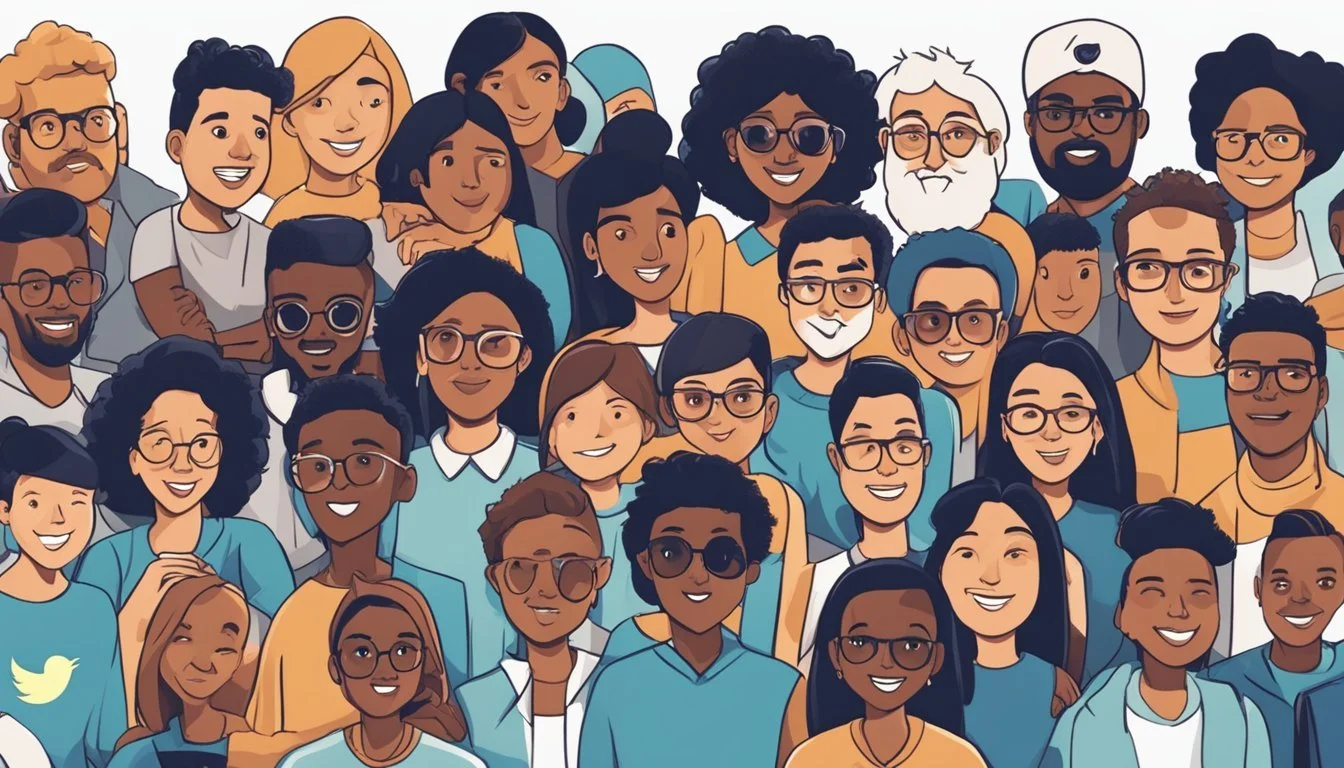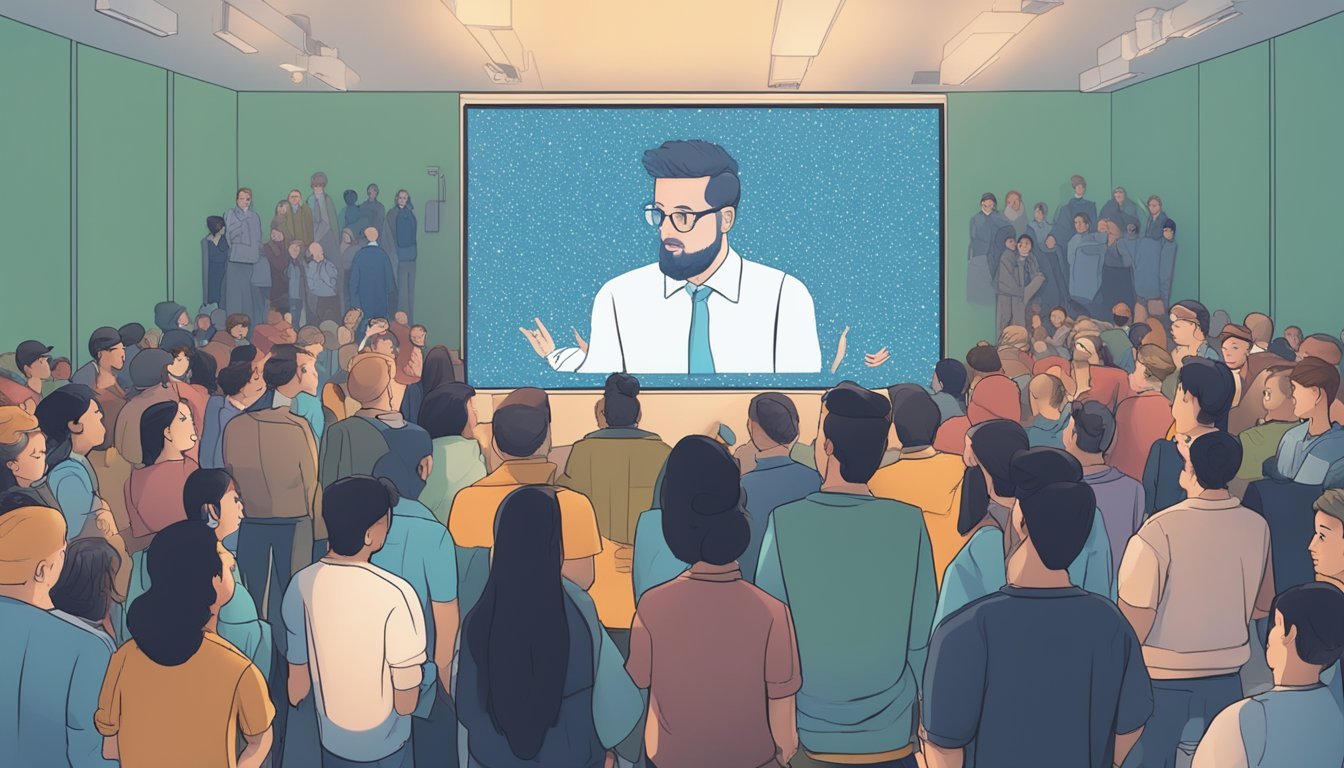Tweet to Screen: How a Viral Thread Became 'Zola'
From Social Media Sensation to Cinema
In 2015, A'Ziah "Zola" King captivated Twitter users with a gripping 148-tweet thread chronicling her wild weekend adventure. This viral sensation caught the attention of Hollywood, leading to the creation of the film "Zola" in 2021. The movie, starring Taylour Paige as Zola and Riley Keough as her newfound friend, brings the chaotic Florida trip to life on the big screen.
The journey from Twitter to cinema showcases the power of social media storytelling. Zola's thread, often referred to as #TheStory, resonated with audiences through its raw, unfiltered narrative. A24, known for innovative productions, saw the potential in this modern-day epic and transformed it into a feature film.
"Zola" serves as a unique case study in adapting digital content for traditional media. The film retains the thread's frenetic energy while expanding on its characters and themes. It demonstrates how a compelling story can transcend platforms, capturing imaginations in 280 characters or 90 minutes of screen time.
Genesis of '#TheStory'
A'Ziah King's viral Twitter thread captivated social media users with its gripping narrative of a chaotic road trip. The 148-tweet saga showcased the power of digital storytelling and launched King into unexpected fame.
Rise of a Twitter Phenomenon
In October 2015, A'Ziah "Zola" King took to Twitter to share a wild tale. Her thread began innocently: "Y'all wanna hear a story about why me & this bitch here fell out? It's kind of long but full of suspense."
What followed was a riveting account of a trip from Detroit to Florida gone awry. King's storytelling prowess shone through her tweets, keeping readers engaged with each new twist.
The thread quickly gained traction, spreading across Twitter like wildfire. Users eagerly awaited each new tweet, retweeting and commenting in real-time.
The Real Zola and Her Epic Tale
A'Ziah King, a Detroit native and former Hooters waitress, became known as "Zola" to her growing online audience. Her story involved a spontaneous road trip with a new acquaintance named Jessica.
The trip's purpose was ostensibly to make money dancing at Florida strip clubs. However, it soon spiraled into a dangerous adventure involving prostitution, violence, and betrayal.
King's candid and humorous narration style made the harrowing tale oddly entertaining. Her use of emojis and internet slang added authenticity to the story.
The thread's popularity led to media attention and fact-checking efforts. While some details were embellished, the core events were largely verified.
From Viral Tweets to Hollywood Script
The journey of Zola from Twitter to the big screen involved creative adaptation and indie filmmaking expertise. A24's involvement, the translation of tweets into a screenplay, and Janicza Bravo's direction were key factors in bringing this unique story to life.
The Role of A24 and Indie Filmmaking
A24, known for supporting innovative projects, played a crucial part in Zola's development. The indie studio recognized the potential of the viral Twitter thread and backed its transition to film. A24's commitment to unconventional storytelling aligned perfectly with Zola's origins.
The studio provided resources and creative freedom, allowing the filmmakers to preserve the raw energy of the original tweets. A24's track record with boundary-pushing films made them an ideal partner for this unconventional adaptation.
Translation of Tweets into Screenplay
Transforming 148 tweets into a coherent screenplay presented unique challenges. Screenwriters Jeremy O. Harris and Janicza Bravo faced the task of expanding the concise Twitter narrative into a full-length film script.
They maintained the voice and tone of the original tweets while adding depth to characters and plot. The writers incorporated additional research and interviews to flesh out the story. Their approach balanced fidelity to the source material with the need for cinematic storytelling.
Janicza Bravo's Direction
Director Janicza Bravo brought a distinct vision to Zola. Her background in theater and independent film informed her approach to the material. Bravo's directorial style emphasized the surreal and darkly comedic elements of the story.
She worked closely with the cast to capture the frenetic energy of the original tweets. Bravo's visual choices and pacing decisions helped translate the rapid-fire nature of social media storytelling to the screen. Her direction ensured that Zola retained its unique voice while functioning as a cohesive film narrative.
Cast and Characters
The film "Zola" features a talented ensemble that brings the viral Twitter thread to life on screen. Key actors portray complex characters with nuanced performances, capturing the wild energy of the original story.
Taylour Paige as Zola
Taylour Paige stars as the titular character Zola, based on A'Ziah "Zola" King. Paige's portrayal captures Zola's wit, resilience, and skepticism throughout the chaotic journey. Her performance anchors the film, providing a grounded perspective amidst the escalating events.
Paige's chemistry with her co-stars helps drive the narrative forward. She effectively conveys Zola's initial intrigue and subsequent wariness as the situation spirals out of control.
Riley Keough as Stefani
Riley Keough takes on the role of Stefani, the exotic dancer who invites Zola on the ill-fated road trip to Florida. Keough's performance balances charm and manipulation, portraying Stefani as an unpredictable force in Zola's life.
Her character serves as a catalyst for much of the film's action. Keough's interpretation highlights the complex dynamics between Stefani and Zola, shifting from seeming friendship to exploitation.
Supporting Cast Highlights
Colman Domingo plays X, Stefani's volatile pimp. His menacing presence adds tension to the story. Domingo's performance brings depth to a character who could easily have been one-dimensional.
Nicholas Braun portrays Derrek, Stefani's hapless boyfriend. Braun's comedic timing provides moments of levity amidst the increasingly dark plot. His character offers a different perspective on the events unfolding.
These supporting roles complement the lead performances, creating a memorable ensemble. Each actor brings unique energy to their character, contributing to the film's dynamic atmosphere.
Themes and Cultural Commentary
Zola explores complex themes around sex work, internet culture, and representation of Black women in media. The film offers commentary on empowerment, exploitation, and the power of viral storytelling.
Sex Work and Empowerment
The film portrays sex work through a nuanced lens. Zola asserts agency over her choices as a stripper, while critiquing exploitation in the industry. Her character refuses to engage in prostitution, drawing a personal boundary.
The movie highlights the economic motivations and risks involved in sex work. It shows both empowered and coerced participants, avoiding simplistic moral judgments.
Zola's resourcefulness and street smarts are emphasized. She navigates dangerous situations with wit and self-preservation instincts.
Internet Culture and Its Impact
Zola exemplifies how social media can amplify personal stories to a global audience. The viral tweet thread that inspired the film demonstrates the power of compelling online narratives.
The movie explores themes of performative identity and curated self-presentation on social platforms. Characters craft exaggerated personas that blur lines between reality and fiction.
It examines how internet fame can be both empowering and exploitative. Zola gains a platform through her tweets, but also faces scrutiny and judgment.
Black Women and Representation
The film centers a Black female protagonist, offering a perspective often marginalized in mainstream cinema. Zola is portrayed as complex, flawed, and multi-dimensional.
It tackles intersections of race and gender in sex work. The movie highlights unique challenges faced by Black women in the industry.
Zola subverts typical Hollywood depictions of sex workers. The protagonist retains autonomy and drives the narrative, rather than being reduced to a victim or object.
The film critiques the fetishization of Black women's bodies. It shows how racial stereotypes can be weaponized and commodified in sex work contexts.
Production Details
"Zola" transformed a viral Twitter thread into a visually striking and musically captivating film. The production brought the story to life through carefully chosen locations, a distinctive visual style, and a memorable soundtrack.
Filming Locations
"Zola" was primarily shot in Tampa, Florida, staying true to the original story's setting. The production team selected locations that captured the essence of the city's strip club scene and tourist areas. Key scenes were filmed at actual Tampa strip clubs, lending authenticity to the film's atmosphere.
Additional filming took place in Atlanta, Georgia, which stood in for some Florida locations. The production utilized Atlanta's diverse urban landscape to recreate certain Tampa environments. This mix of real and substituted locations allowed the filmmakers to craft a visually cohesive representation of the story's world.
Cinematic Aesthetics
Director Janicza Bravo and cinematographer Ari Wegner crafted a unique visual style for "Zola". They employed a vibrant color palette that reflected the neon-lit world of strip clubs and Florida's tropical atmosphere. The film's aesthetic incorporated elements reminiscent of phone screens and social media, nodding to the story's Twitter origins.
Bravo utilized unconventional framing and camera movements to heighten tension and convey the chaotic nature of the events. The visual approach balanced realism with a dreamlike quality, mirroring the surreal nature of Zola's experience.
Music and Soundtrack
The "Zola" soundtrack played a crucial role in establishing the film's tone. Composer Mica Levi created an original score that blended electronic elements with more traditional instrumentation. The music enhanced the story's tension and amplified its emotional beats.
In addition to the original score, the film featured a selection of contemporary hip-hop and R&B tracks. These songs helped ground the movie in its cultural context and added energy to key scenes. The mix of original compositions and carefully chosen licensed music created a sonic landscape that complemented the visual style and narrative of the A24 film.
Reception and Impact
"Zola" garnered significant attention from critics and audiences alike, sparking discussions about social media's influence on storytelling and filmmaking.
Critical Acclaim and Reviews
"Zola" premiered at the Sundance Film Festival to positive reviews. Critics praised the film's innovative approach to adapting a Twitter thread. Vulture called it "a wild ride" that captured the energy of the original tweets. Rolling Stone lauded the performances, particularly Taylour Paige's portrayal of Zola.
The film's unique style and narrative structure received recognition. Many reviewers highlighted how it successfully translated internet culture to the big screen. Elle magazine described it as "a groundbreaking work that pushes the boundaries of digital-age storytelling."
Public Response and Virality
"Zola" sparked intense conversations on social media platforms. Audiences debated the film's authenticity and its portrayal of sex work. The movie reignited interest in the original Twitter thread, leading to a surge in retweets and discussions.
Many viewers praised the film for staying true to the spirit of the viral story. Some expressed surprise at how well the Twitter format translated to cinema. The film's release led to a wave of memes and viral content, mirroring the original thread's impact.
"Zola" inspired discussions about the potential of social media as a source for future film adaptations. It set a precedent for turning viral internet phenomena into full-length features.
Real-life Implications
The Zola story's adaptation from Twitter to film raised important questions about social media's impact on storytelling and representation. It also highlighted issues surrounding sex work and exploitation in America.
Legal and Ethical Considerations
The Zola story exposed the dark realities of sex trafficking and prostitution. It shed light on the use of platforms like Backpage to facilitate illegal activities. The film adaptation faced challenges in portraying these sensitive topics responsibly.
Producers had to navigate complex legal issues surrounding the depiction of real events and people. They also grappled with ethical concerns about profiting from a story involving exploitation.
The movie prompted discussions about consent and agency in sex work. It raised questions about the line between voluntary prostitution and coerced trafficking.
Influence on Pop Culture and Media
Zola's journey from tweet thread to major motion picture marked a shift in how stories can originate and spread. It demonstrated social media's power to launch new voices into the mainstream.
The film's success inspired other adaptations of viral internet content. It opened doors for unconventional storytelling formats in Hollywood.
Zola sparked conversations about race, gender, and sexuality in entertainment. It challenged traditional notions of who gets to tell which stories.
The movie's frank depiction of stripping and sex work pushed boundaries in mainstream cinema. It contributed to ongoing debates about censorship and artistic freedom.
Legacy and Future Prospects
'Zola' marks a significant milestone in digital-age storytelling. Its journey from Twitter to the big screen has opened new possibilities for content creation and adaptation in Hollywood.
Potential for Further Story Development
'Zola' has paved the way for more social media-inspired films. Studios are now actively scouting viral threads and posts for potential adaptations. This trend could lead to a series of 'Zola'-inspired movies, each capturing unique online narratives.
The film's success might also spark interest in a 'Zola' sequel or spin-off. Creators could explore untold aspects of the original story or follow new characters introduced in the movie.
Evolving Landscape of Digital Storytelling
'Zola' demonstrates the power of social media as a storytelling platform. It challenges traditional notions of authorship and narrative structure in filmmaking.
This shift may inspire more filmmakers to experiment with unconventional storytelling methods. We could see an increase in movies based on other digital formats like TikTok videos, Instagram stories, or Reddit threads.
The film industry might also invest more in developing tools to identify and acquire viral online content. This could create new career opportunities for social media storytellers and content creators.







